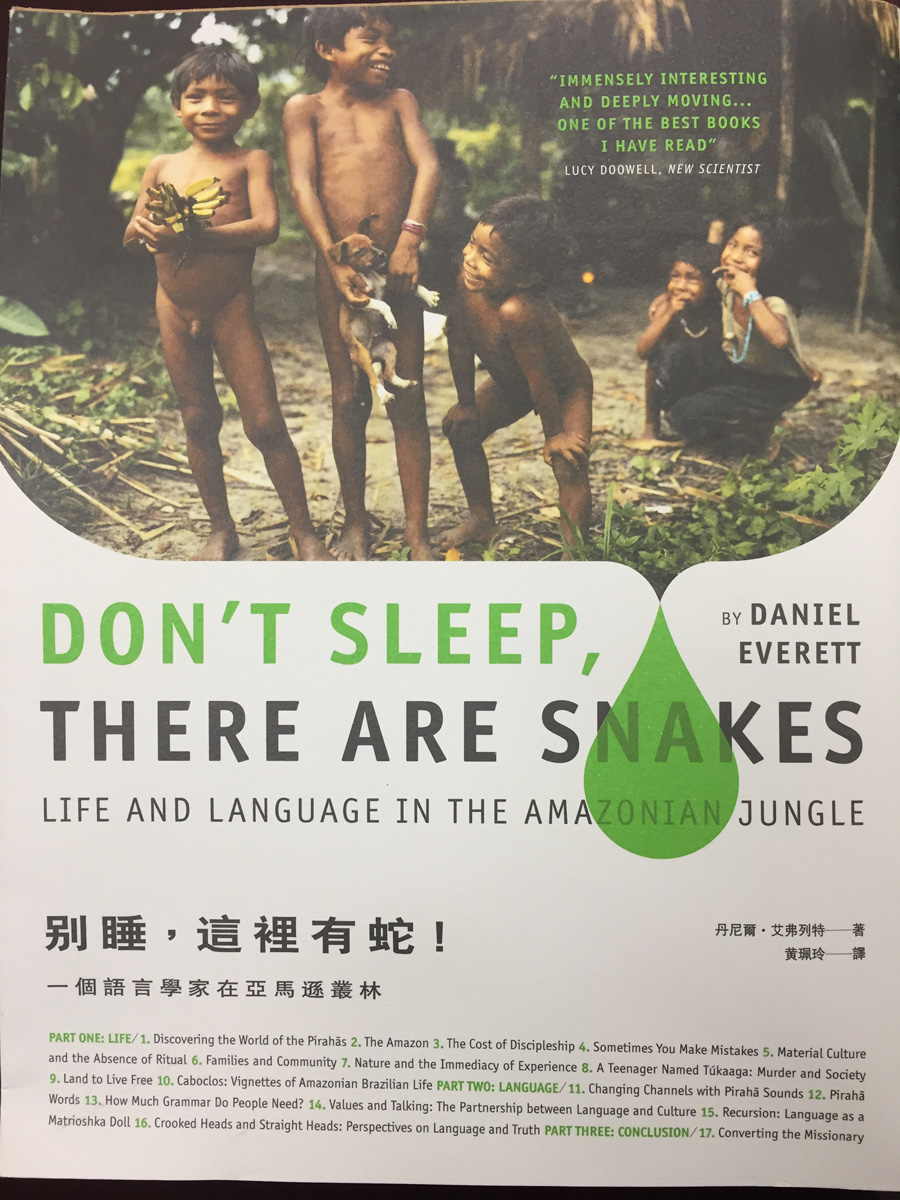

The worldview of the Pirahã is perhaps best summarized by how they wish each other “good night.” The carefree Pirahã reliably came out on top. But they also happen to be among the happiest people you’re likely to meet.Īnthropologists who have spent time with them were asked to assess them in terms of how much time they spent laughing and smiling compared to other cultures they had encountered. It’s not an easy life in the jungle – the Pirahã are a tough lot. We’re confident of this because they use Portuguese loanwords, probably picked up from other tribes, to describe some of the native species of monkeys. The Pirahã are monolingual and probably moved to the area after their language developed. The Pirahã language is the last remaining dialect of the Mura language group. The Pirahã are hunter-gatherers who live along the Maici River in the Amazonian jungle of northwestern Brazil. It’s not that their lives aren’t without hardships, they just conceive of the world differently. This is true of the Pirahã (pronounced pee-da-HAN). Imagine not having a word for “worry” because no such notion exists. We use language to conceptualize the world as we see it. why endangered languages like the Pirahã language should be preserved and studied.how the Pirahã use word endings to indicate evidence behind their statements and.why the phrase “don’t sleep, there are snakes” is indicative of the Pirahãn mentality.In this summary of Don’t Sleep, There Are Snakes by Daniel Everett, you’ll learn We will also see how their language shapes, and is shaped by, their perspectives on the world around them. This story isn’t a patronizing look at how these people are different from our Western norms rather, it’s a fascinating account of their language, and how it is vastly different from anything we might be accustomed to. The author, Daniel Everett, spent many years living with the Pirahã, isolated in the depths of the Amazonian jungle. If you saw six snow-white doves nestling in a dovecot, would you think of them as “six,” or even as “snow-white”? This might sound like a frivolous thought experiment, but for the Pirahã, a people in the Amazonian jungle, this is simply how things are. Can you imagine what it would be like if you had no words to classify the colors you see? What if you didn’t have numbers? It would certainly alter the way you interpreted your surroundings.


 0 kommentar(er)
0 kommentar(er)
